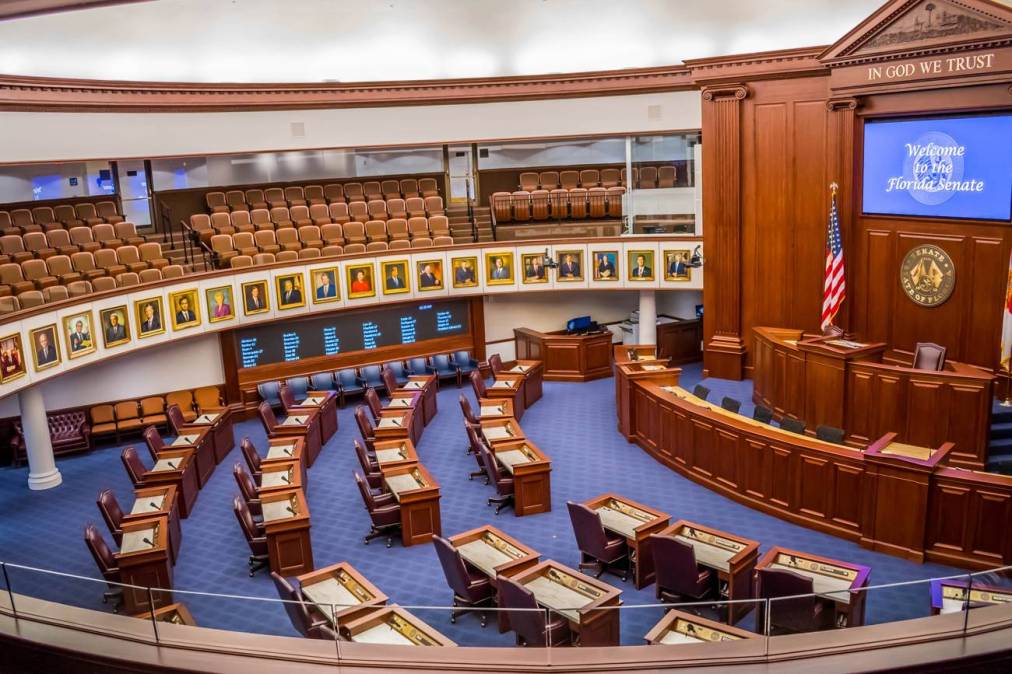Florida didn’t pass its IT overhaul bill

Florida lawmakers closed out their 60-day regular legislative session last Friday, tallying 205 approved bills and resolutions for the year. But the bill that would have overhauled the state’s IT was not one of them.
The legislature also failed to pass the one bill it’s legally required to pass, the state budget, and is slated to return next Monday to complete that task and consider a handful of other bills. But the Senate bill and House companion that would have created the Agency for State Systems and Enterprise Technology, or ASSET, have each been marked as “indefinitely postponed and withdrawn from consideration.”
Neither Rep. Mike Giallombardo nor Sen. Gayle Harrell, who sponsored the ASSET bills, responded to requests to comment for this story.
James Grant, the state’s former chief information officer who also spent roughly a decade serving the state legislature, told StateScoop that he never gave the bill’s passage this session better odds than a coin flip.
“The Senate has always traded on budget, and the House has always traded on policy,” Grant said. “And the reason that’s relevant here is when the Senate rolls out a conforming bill, which is basically a budget bill, it’s really a money thing, even though there’s policy around it. The House is set up and wired to be much more policy-driven.”
Grant said Florida’s House of Representatives, with its 120 members, compared to the Senate’s 40 members, has more capacity to handle policy, and another session could allow the time it needs to hammer out answers to key questions, such as whether the new agency’s CIO should be an appointed position, or precisely how the new office would be funded.
Aubrey Jewett, an associate professor of politics at the University of Central Florida, speculated that the bill may have been sidelined amid squabbles between Gov. Ron DeSantis and the legislature’s chambers, even though they each enjoy a Republican supermajority. Key issues of contention included House Speaker Daniel Perez calling for a permanent 0.75% reduction in sales tax, which was not supported by the Senate. DeSantis meanwhile continued his controversial push to eliminate property taxes.
“Just like in Congress, in the state legislature, in Tallahassee, getting a bill through is like getting through an obstacle course,” Jewett said. “There’s lots of obstacles that can kill a bill, and it’s a very difficult process. A couple thousand bills typically are introduced and maybe 300 or something are going to get passed. You don’t have great odds.”
Jewett said this session, though, was especially acrimonious and perilous for new legislation. Another casualty of the fighting was the removal of language from a mental health bill that would have created a substance abuse center at the University of South Florida, named after Sen. Darryl Rouson, whose personal history includes overcoming homelessness and drug addiction.
“The House refused to fund it and the Senate really got ticked,” Jewett said. “From their perspective, that was a very petty thing to do. The governor even got mad. Even though this guy’s a Democrat, there was this general sense that this was an inspiring story. That was just emblematic of the session.”
For those wishing to see Florida finally reform its technological troubles, Harrell’s bill remains the only proposal currently in play. The Senate bill, which passed unanimously last month, would have the state provide $177 million in funding to staff an agency with nearly 200 workers. The agency would assume a centralized structure designed to provide better oversight and keep some of the state’s interminable high-dollar IT projects on track.
Florida’s next legislative session is scheduled to reconvene Jan. 13.






